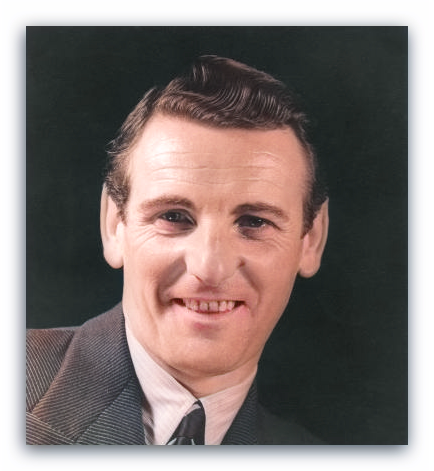
Early on the morning of 22 June 1984, the 74th birthday of Anne Ziegler, I received a phone call from Janet Swart, whom I had first encountered as Janet Goldsborough, singing in Mrs Dorothy McDonald-Rouse’s concert party in Johannesburg in 1957 when I was 13. Janet was a regular listener to BBC World Service and knew of my close association with Anne and Webster. She was thoughtful enough to let me know that it had been announced on News About Britain that Webster had died the day before. Janet herself died about six weeks ago but I will always be grateful to her for making that call, as I would have been completely devastated to have heard such news via the media.
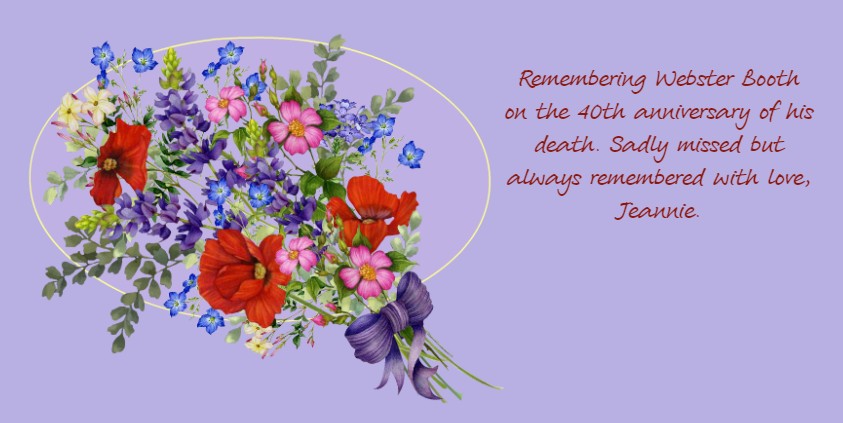
A selection of obituaries printed at the time
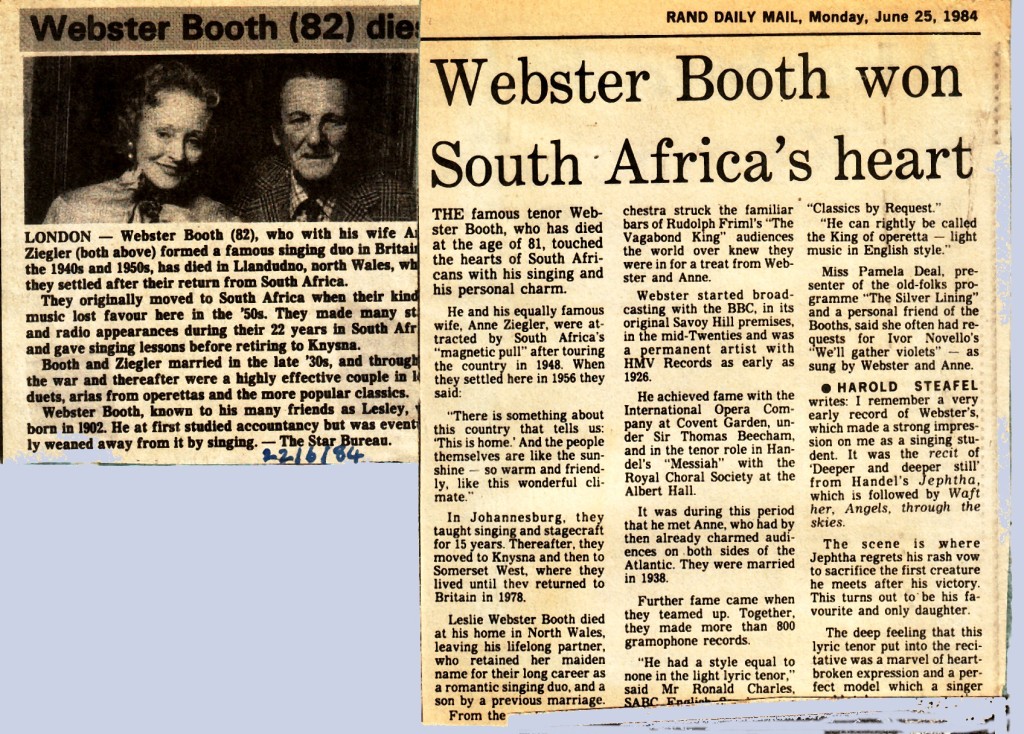
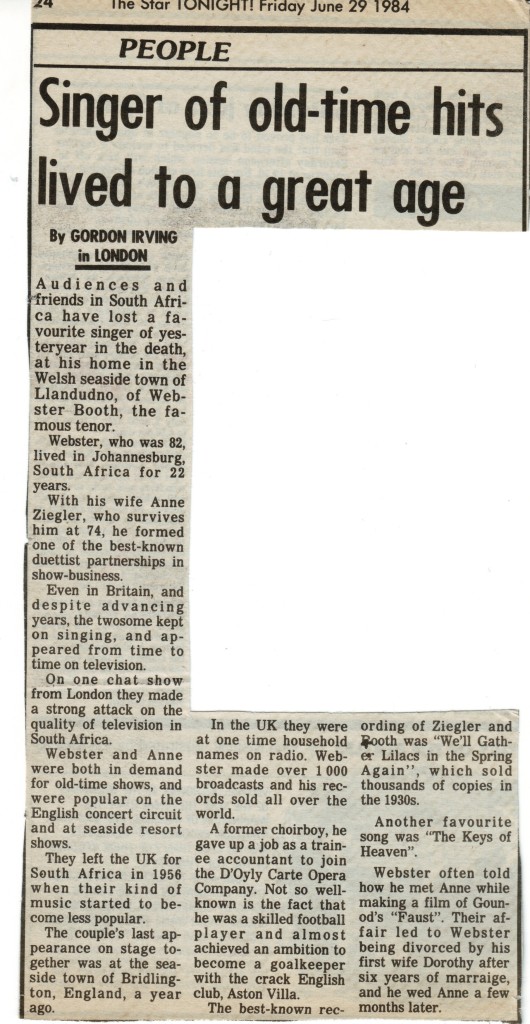
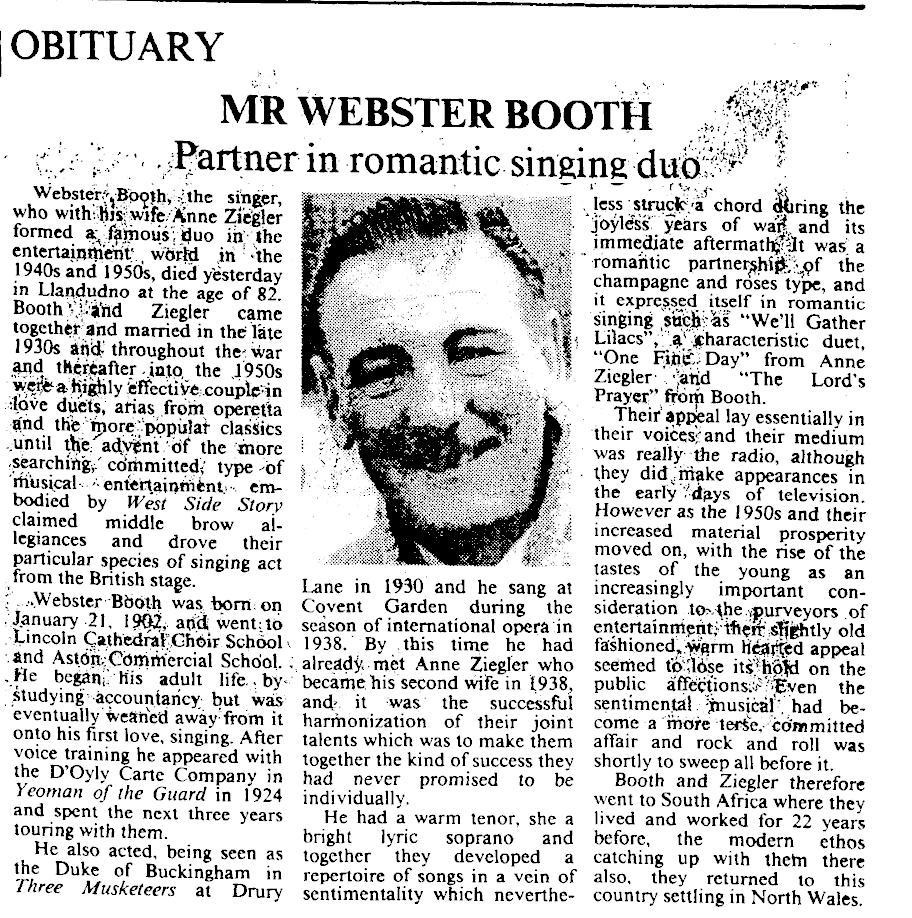
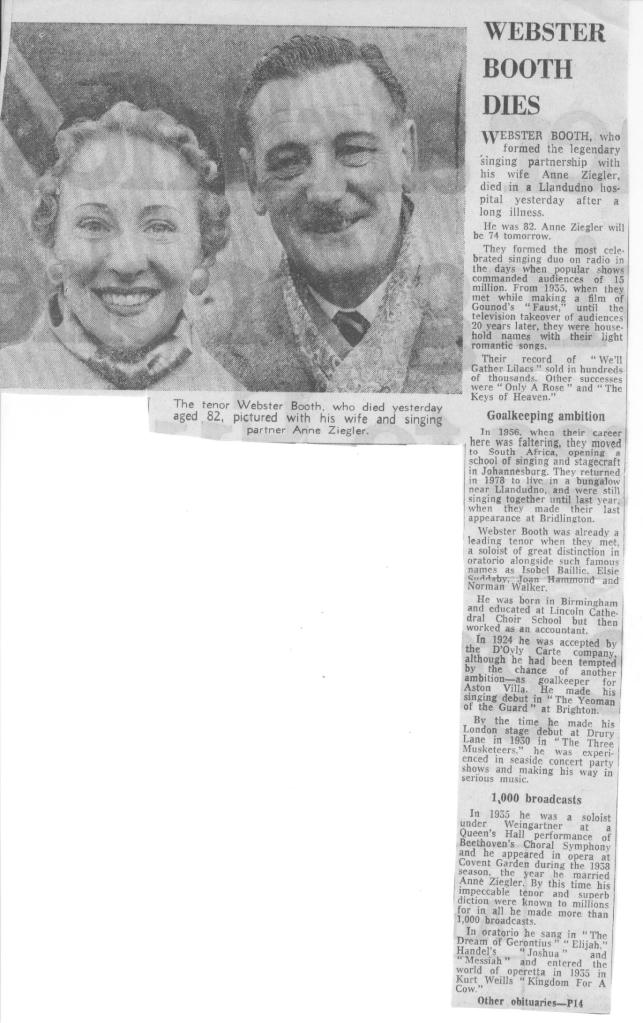
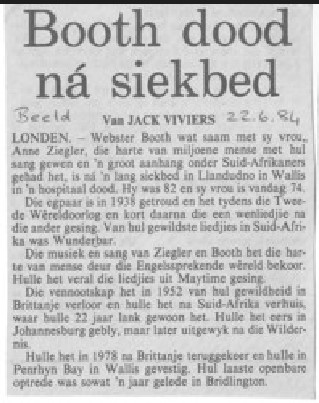
Thanks to John Marwood for the English translation as follows:
Booth dies after illness 22.6.84
From JACK G. VIVIERS • LONDON. — Webster Booth, who together with his wife, Anne Ziegler, won the hearts of millions of people with their singing and had a large following among South Africans, died in a hospital in Llandudno in Wales after a long illness. He was 82 and his wife is 74 today.
The couple married in 1938 and sang one winning song after another during World War II and soon after. One of their most popular songs in South Africa was Wunderbar.
The music and singing of Ziegler and Booth captured the hearts of people throughout the English-speaking world. They sang many songs from Maytime.
The partnership lost some of its popularity in Britain in 1952 and they moved to South Africa, where they lived for 22 years. They first lived in Johannesburg, but later moved to the Wilderness (Knysna).
They returned to Britain in 1978 and settled in Penrhyn Bay in Wales. Their last public performance was in Bridlington about a year ago.
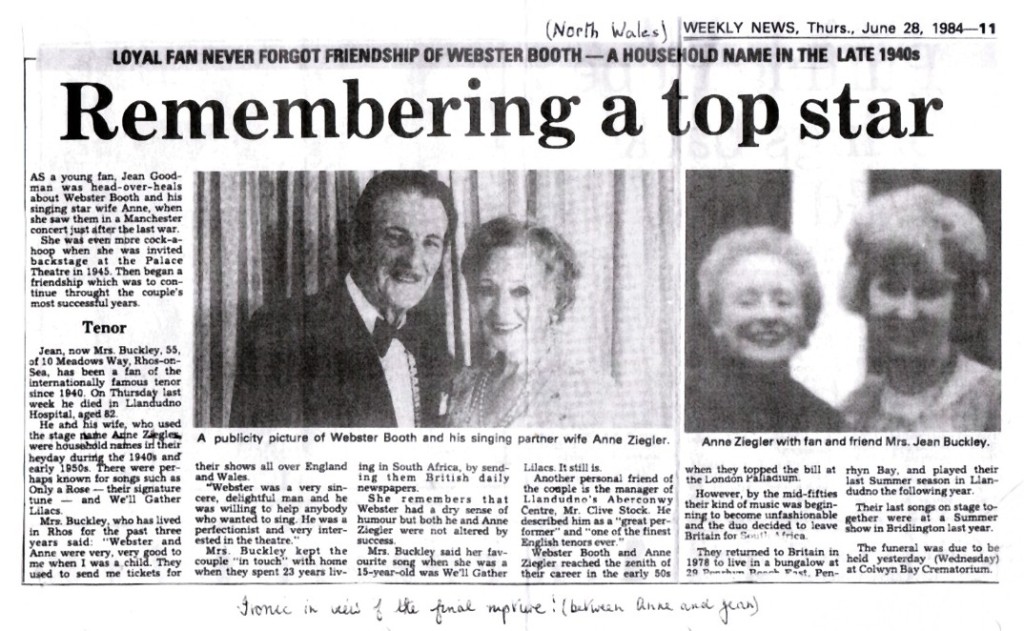
I suggested to the Webster Booth-Anne Ziegler Appreciation group that members might like to select one of their favourite recordings which I would play leading up to the 21 June. I am listing them here. I have also suggested that those who would like to do so post a tribute to Webster to be published on 21 June.
2 June, David Small chose the duet Ah, Sweet Mystery of Life:
3 June John Rogers chose Serenade in the Night featured below.
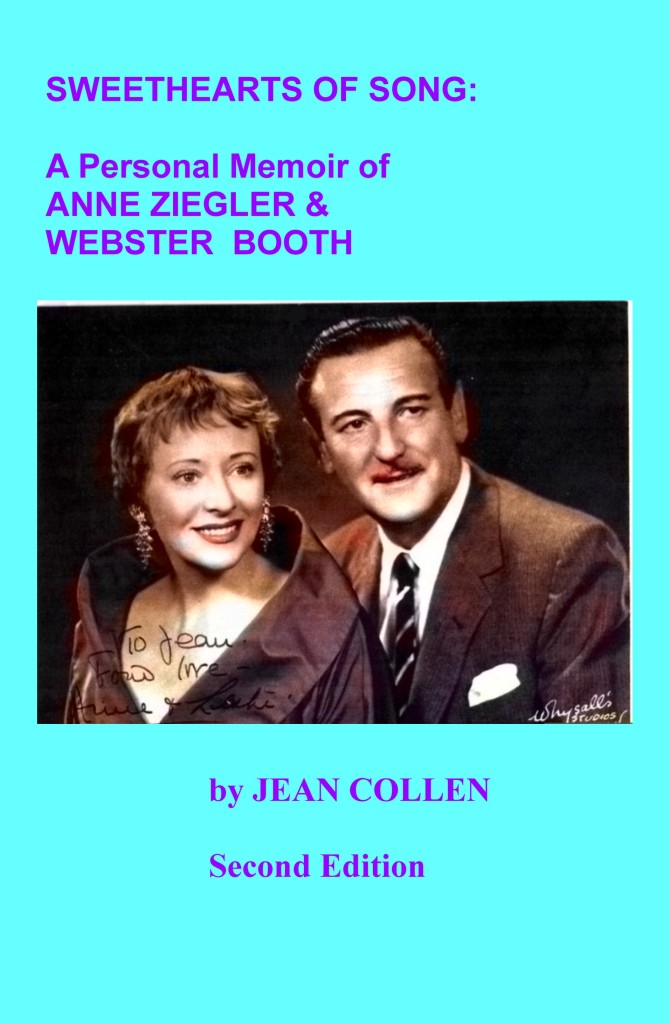
4 June: Shiv K Purohit chose Anne and Webster singing: O Lovely Night by Landon Ronald:
https://drive.google.com/file/d/1sduBTwpOCBAZrroZsyGsh4fBJDuGfukF/view?usp=drive_link
5 June: Peter Wallace chose: One Alone:
6 June: John Marwood chose: The Lost Chord by Arthur Sullivan.
7 June. Robert Knight chose: The Holy City.
8 June: Anne Cook chose: Your Tiny Hand is Frozen.
9 June: Rick Wilmot chose Indian Love Call.
10 June: Marie Lamb chose Waft Her, Angels, Through the Skies from the oratorio, Jephtha by Handel.
Song of Songs holds a special place in my heart and memory; it was one of a clutch of pieces of sheet music that lived in the piano stool, ready to be played (again) by my father for Mummy to sing. I therefore knew it well as a tot and, when it came on the wireless when I was about 3 (before I started school at 4, anyway), I recall joining in, much to the amusement of a visiting neighbour. My parents were very fond of Anne and Webster, and passed on their fond appreciation.
11 June: Glynis chose: Song of Songs by Moya.
12 June: The birthday of Webster’s late son, Keith Leslie Booth (1925 – 1997).
Jeff Woods chose: We’ll Gather Lilacs by Ivor Novello, one of their favourite duets.
13 June: Grietje de Vries chose A Perfect Day by Carrie Jacobs-Bond:
14 June: Bob Sanders chose I Leave My Heart in an English Garden by Welsh composer, Harry Parr-Davis. Harry Parr-Davis was Bob’s father’s cousin.
15 June: Grietje also chose the beautiful Irish ballad, Danny Boy.
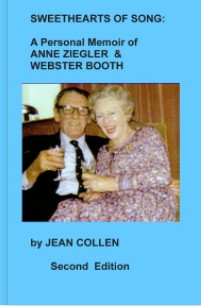
https://youtu.be/AMaAOc3aO5s?si=WVuIbv17-ULdZxWm
16 June: Suzanne West chose Nirvana.
17 June: Dudley Holmes choice is Morning Glory from Sweet Yesterday by Kenneth Leslie-Smith.
18 June: Charles Jenkins has chosen The Bells of St Mary’s by Emmett Adams:
19 June: Charles Jenkins’ second choice is Bless This House by May H. Brae:
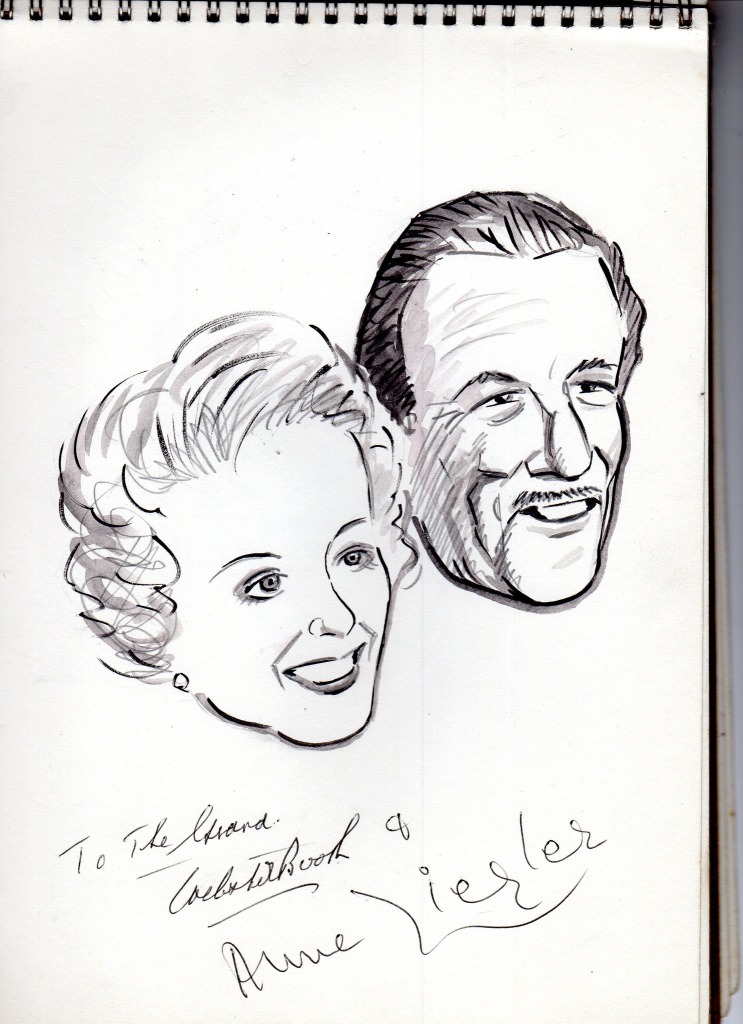
20 June: My choice is Sylvia by Oley Speaks, the first song I accompanied when I played for Webster in the studio all those years ago.
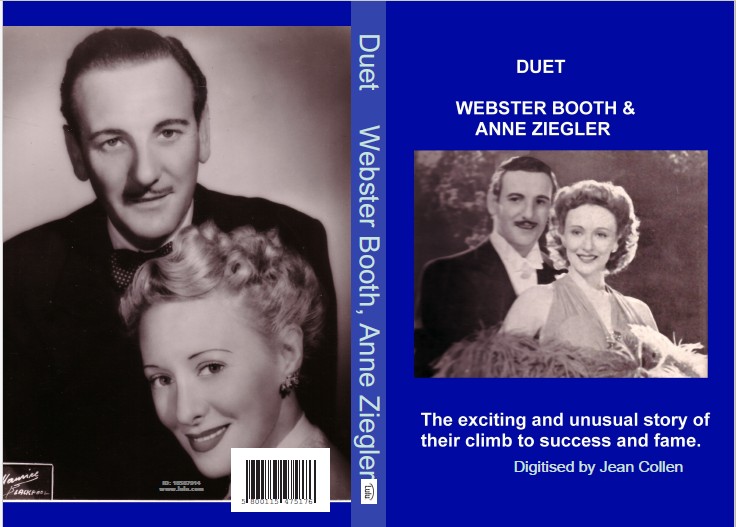
https://drive.google.com/file/d/1S5MFI4qX3xWVAcppGuEo9eMyvLhg3afY/view?usp=drive_link
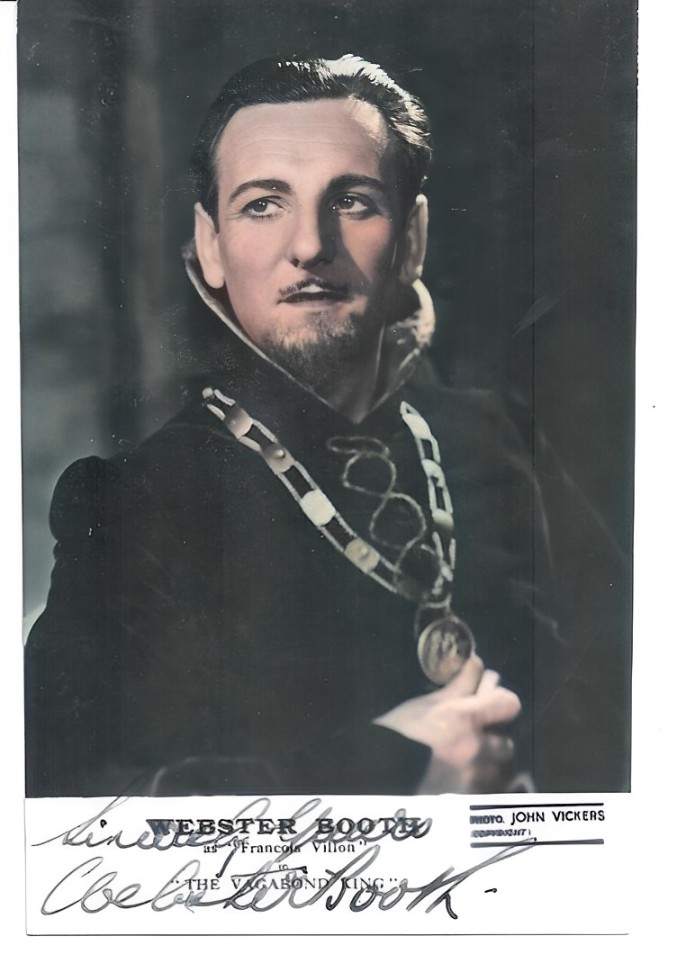
This medley is a tribute to Webster on the fortieth anniversary of his death: Wayside Rose from Frederica and the Serenade from Frasquita by Lehar, The Way You Look Tonight from Swing Time by Kern, and Sweet Melody of Night from Give us this Night by Korngold.
https://drive.google.com/file/d/1lR883lHcTF6GsTQ_Eyz7x-LBZw50GN_S/view?usp=drive_link
Many thanks to those in the Webster Booth-Anne Ziegler Appreciation Group on Facebook who participated and chose their favourite songs for this tribute to Webster Booth.
Jean Collen, June 2024


